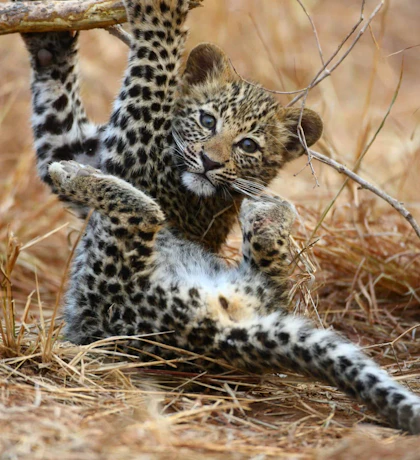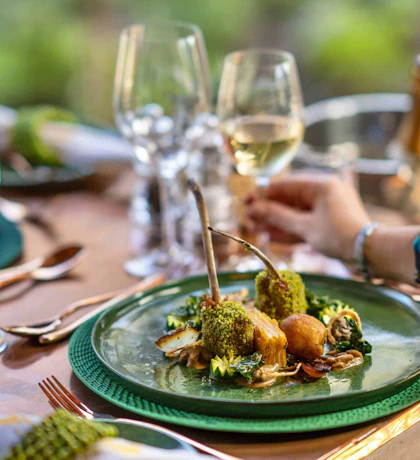Not ready to book just yet? Submit an enquiry and our team will be in touch within 24 hours.
A proud past; a brighter future.
Royal MalewaneWhen you visit Royal Malewane, you’ll have the chance to visit local communities and learn more about their culture and way of life. The communities closest to Royal Malewane are largely made up of Sotho and Shangaan people, and a visit to one our lodges gives you an opportunity to learn more about the rich cultural heritage of our neighbours and stakeholders.
A cultural visit to a local village will give you insights into the challenges facing people living in this remote area, as well as discovering how they have learned to overcome these difficulties.
They’ve embraced ecotourism as a way of sustainably managing their land and its resources, and they are our most important allies when it comes to conserving species and preserving Africa’s wild places.
A quick history lesson
The Shangaan belong the larger Tsonga group of people, who are represented across parts of South Africa, Mozambique and Zimbabwe. Like many other groups in southern Africa, their history was impacted by the expansion of the Zulu empire under Shaka Zulu.
Once he became king in 1816, Shaka looked to increase his area of influence by absorbing surrounding chiefdoms – by force if necessary. This brought his armies into conflict with the Tsonga people living in what is now Mozambique.
While the term “Shangaan” is used loosely to describe many Tsonga people, this is not actually correct. Today’s Shangaan people trace their lineage to Shaka’s general, Shoshangane.
Below: a sketch of a traditional setup.
Shoshangane was amazed by the peaceful and fertile lands he came across, so he decided to settle and form his own tribe. Over time, this new tribe, now known as the Shangaan, absorbed many of the surrounding communities, including some Tsonga and Nguni people.
As the Shangaan increased in number, they spread into neighbouring parts of south-eastern Zimbabwe and South Africa. Very little of this early history was written down, and most of what we know comes from the African oral tradition of storytelling.
The importance of ancestors
In Shangaan-Tsonga culture the ancestors are believed to hold considerable sway over the lives of their descendants, and invoking them is an integral part of day-to-day life. Certain spirits or ancestors are believed to live on in sacred burial grounds, and paying respect to the deceased helps present and future generations to thrive.
The head of a family may be buried inside the family’s cattle kraal (the enclosure where livestock are kept at night). Being close to his herd – his pride and joy during his life – is believed to ensure that the father rests in peace.
Today, the Shangaan live mostly within Northern Province and Mpumalanga in South Africa, while the majority of the Tsonga people live in southern Mozambique.
Below: The Farmstead at Royal Malewane.
Neighbours, landlords, partners
Our relationship with our neighbouring communities is at the heart of everything we do. For example, The Farmstead at Royal Malewane stands on land leased from the local community. We offer community members employment and skills transfer opportunities, and at the end of the lease, both the land and the asset will revert to the community, giving them the option to continue working with The Royal Portfolio in perpetuity.
We believe that community and conservation are inextricably linked. Sharing the financial gains from ecotourism gives people more of an incentive to protect their wildlife and, and share their culture with visitors. The sustainable benefits of tourism far outweigh any short-term (but ultimately counter-productive) gains from hunting or poaching.
Through The Royal Portfolio Foundation, we’re actively supporting multiple community outreach and upliftment projects. We’re helping local people gain access to education and healthcare, and giving people a platform on which to share their proud history and their hopes for the future.
Some basic Xitsonga phrases that might come in useful
• Good morning – Avuxeni
• Good afternoon – Indzenga
• How are you? – Kunjani?
• I’m fine thanks – Ndikona
• Thank you – Inkomu
Learn more about the community work of The Royal Portfolio Foundation here.









